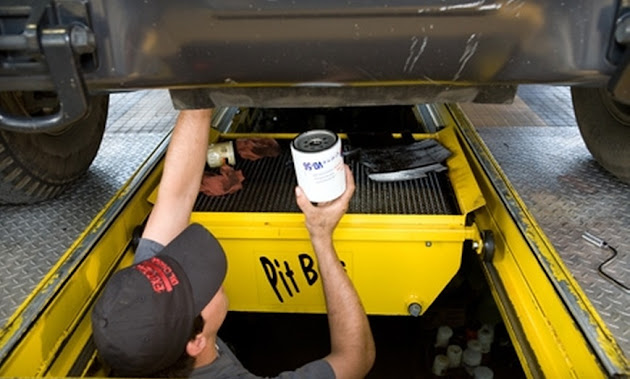NJ State Car Inspection Near Me: A Comprehensive Guide
Welcome to our comprehensive guide on NJ state car inspection! If you've ever wondered about the process, requirements, and importance of vehicle inspections in New Jersey, you've come to the right place. In this blog, we will provide you with all the essential information you need to know, so you can stay on top of your vehicle's maintenance and legal obligations.
Understanding NJ State Car Inspection
Before we dive into the details, let's first define what NJ
state car inspection is all about. Vehicle inspection, also known as state
inspection, is a mandatory process conducted in New Jersey to ensure that
vehicles comply with safety and emissions standards. This process helps
maintain road safety, protects the environment, and ensures the overall
condition of vehicles on the road. So, whether you're a new resident or have
owned a vehicle in New Jersey for years, it's important to understand the ins
and outs of this state inspection requirement.
Importance of Regular Car Inspections
Regular vehicle inspections are crucial for several reasons.
Firstly, they play a significant role in promoting road safety and reducing
accident risks. By identifying and addressing potential issues, inspections
help ensure that vehicles are in optimal condition, reducing the chances of
malfunctions and breakdowns that could lead to accidents. Additionally,
inspections ensure that vehicles meet environmental and safety standards,
contributing to a cleaner and safer environment for everyone. Moreover, routine
inspections help maintain vehicle performance, longevity, and fuel efficiency,
saving you money in the long run.
Legal Requirements for NJ State Car Inspections
In New Jersey, vehicle inspections are a legal requirement
for most vehicles. The state mandates that vehicles undergo inspection every
two years. It is important to note that passing the inspection is essential to
maintain the legal registration and operation of your vehicle in New Jersey.
Failure to comply with this requirement can result in penalties, fines, or even
the suspension of your vehicle registration, so it's crucial to stay up to date
with your inspections. However, some new vehicles or vehicles still under
warranty may be exempt from the inspection process, so it's best to check with
the Motor Vehicle Commission for specific details.
Key Aspects of NJ State Car Inspection
Now that you understand the importance and legal
requirements, let's discuss the key aspects of the NJ state car inspection process. During the inspection, certified technicians thoroughly assess various
components and systems of your vehicle to ensure compliance with safety and
emissions standards. Understanding the inspection process and what to expect
can help you better prepare for the inspection and increase your chances of
passing without any issues.
Inspection Components and Processes
During the state inspection, technicians will carefully
examine several components and processes. Here are some key aspects of the
inspection process:
- Brake
Service: Technicians will inspect the brake performance and condition,
ensuring they meet the required standards.
- Emissions
Testing: This measurement of vehicle exhaust aims to identify the presence
of harmful pollutants, helping to reduce air pollution.
- Lighting,
Steering, Suspension, and Tire Conditions: These are essential areas
checked during the inspection, ensuring proper functionality and safety.
Common Issues Identified During Inspection
While the inspection process aims to ensure vehicles are in
good condition, certain issues are commonly identified during inspections. Some
of these common issues include:
- Worn
brake pads: As a crucial safety component, worn brake pads may need
replacement.
- Damaged
brake lines: Leaky or damaged brake lines can compromise the brake
system's integrity.
- Faulty
brake systems: Issues with brake systems, such as malfunctioning ABS or
brake lights, may require repair or replacement.
- Similarly,
emission problems may arise from malfunctioning catalytic converters or
oxygen sensors. Additionally, technicians pay close attention to tire
tread depth, pressure, and overall condition during the inspection
process.
Is Regular Car Maintenance Enough to Pass the NJ State Car Inspection?
Regular car maintenance is a crucial aspect of vehicle
ownership and plays a significant role in keeping your vehicle in good
condition. While routine service and maintenance help prevent many potential
issues, it's important to note that passing the NJ state car inspection
requires specific compliance with safety and emissions standards. This means
that regular maintenance alone may not guarantee your vehicle will pass
inspection. The inspection process focuses on specific criteria, components,
and processes, and may identify issues that routine service does not address.
Therefore, it's essential to ensure that your vehicle undergoes both regular maintenance
and the required state inspection.
Conclusion
Regular car inspections are crucial for ensuring the safety
and roadworthiness of your vehicle. They not only help prevent accidents but
also ensure that your vehicle meets the legal requirements set by the state. NJ
State car inspections cover various aspects such as emissions, brakes, tires,
lights, and more. It is important to understand the components and processes
involved in the inspection to be better prepared. While regular car maintenance
is essential, it may not be enough to pass the NJ State car inspection.
Therefore, it is recommended to stay proactive and keep up with regular
inspections to avoid any last-minute surprises. Stay on top of your vehicle's
condition and schedule your NJ State car inspection today to maintain a safe
and reliable vehicle on the road.




Comments
Post a Comment